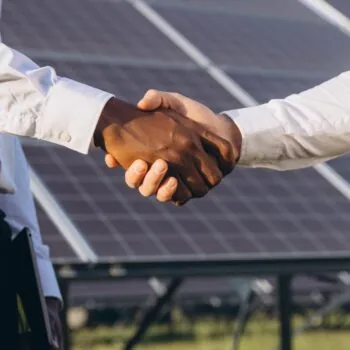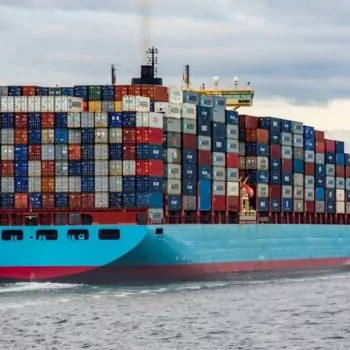- E3G’s latest report uncovers how investment treaties with investor-state dispute settlement (ISDS) provisions are at odds with international climate efforts, such as efforts from the G7 and climate initiatives, like the CETP and the BOGA.
- Globally, investment treaties with ISDS provisions protect fossil fuel assets with the potential to collectively emit around 2 Gt CO2e annually. Parent companies headquartered in the G7 are responsible for 50% (1 Gt CO2e) of this total figure.
- The United Kingdom protects more potential annual greenhouse gas emissions than any other country: 255 megatonnes (Mt) CO2e. That is 3.8 times the GHG emissions resulting from all UK domestic fossil fuel operations in 2022.
Story
Today, E3G has published a report, entitled ‘Investment Treaties are Undermining the Global Energy Transition’. This report reveals how investment treaties with investor-state dispute settlement (ISDS) provisions are misaligned with international efforts to achieve net zero. By mapping the global coverage of ISDS-protected fossil fuel assets, the report identifies which countries protect the most greenhouse gas emissions via ISDS, and which countries are the most vulnerable to potential ISDS claims.
ISDS allows foreign investors to bring claims against host governments in international arbitration tribunals if their business interests are undermined by government measures. ISDS poses a risk to the global energy transition by delaying ambitious climate measures, raising the costs of climate action, and encouraging further investments in fossil fuels.
Six of the top 15 countries that protect most overseas GHG emissions via ISDS have committed to end new export finance support for overseas fossil fuel projects by joining the Clean Energy Transition Partnership (CETP). Additionally, Spain and France – core members of the Beyond Oil and Gas Alliance (BOGA) – together protect 165 Mt CO2e from ISDS-covered oil and gas fields, which is 3.3 times the GHG emissions that the two countries emitted domestically in 2022 in all fossil fuel operations. Ironically, they are slowing down the energy transition of other oil- and gas-producing countries via ISDS.
The report also finds that 80% of total potential ISDS claims could be brought against oil and gas fields, which means that ISDS can particularly affect phase-out policies of oil and gas production. Egypt and Nigeria are at the highest risk of ISDS claims. Colombia (a friend of BOGA) and Indonesia (supported through a Just Energy Transition Partnership) are also highly exposed to ISDS risk. This means ISDS can get in the way of their transition efforts.
If countries leading efforts to accelerate the energy transition are serious about honouring their climate commitments, they need to act on reforming investment treaties with ISDS provisions. E3G’s report recommends that countries start by considering the options for investment treaty reform, collectively pursuing a plurilateral solution, and bringing investment treaty reform to the forefront of climate discussions.
Quotes
Eunjung Lee, Senior Policy Advisor, Clean Economy, E3G said:
“The wealthiest countries that have been leading international climate initiatives are contradicting themselves by protecting fossil fuel investments through investment treaties with investor-state dispute settlement (ISDS) provisions. Leaving open such a backdoor to fossil fuel protection would undermine efforts to phase out fossil fuels and mobilise climate finance, interrupting a timely energy transition.”
Jordan Dilworth, Researcher, Clean Economy, E3G said:
“The new Labour government has inherited over 90 climate-destroying investment treaties with investor-state dispute settlement (ISDS) provisions. It is astonishing that the UK protects more greenhouse gas emissions via ISDS than any other country. The UK can reclaim its title as a climate leader by reforming these treaties, which jeopardise the global energy transition.”
– ENDS –
Available for comment
Jordan Dilworth (EN), Researcher, Clean Economy
m: +44 (0) 7 956 534 879 | jordan.dilworth@e3g.org
Eunjung Lee (EN), Senior Policy Advisor, Clean Economy
eunjung.lee@e3g.org
Notes to Editors
- E3G is an independent climate change think tank with a global outlook. We work on the frontier of the climate landscape, tackling the barriers and advancing the solutions to a safe climate. Our goal is to translate climate politics, economics and policies into action. About – E3G
- For further enquiries email press@e3g.org or phone +44 (0)7783 787 863.
- E3G worked with Tord Lauvland Bjørnevik at WWF-Norway to analyse upstream oil and gas extraction. The background, methodology, analysis of power plants and coal mines, findings, and recommendations of the report was led by E3G and reflects its views alone.
- E3G used the Global Energy Monitor’s Global Coal Plant Tracker (GCPT) (Jan 2024), Global Coal Mine Tracker (GCMT) (Oct 2023), and Global Oil and Gas Plant Tracker (GOGPT) (Aug 2023). In addition, E3G worked with WWF-Norway to analyse upstream oil and gas extraction using Rystad Energy’s UCube, which is their global asset-level oil and gas upstream database.
- E3G used 2,463 investment treaties with ISDS provisions, including treaties in force, recently signed and terminated if a sunset clause still applies, for the analysis. E3G extracted data on all investment treaties from the UN Trade and Development (UNCTAD)’s International Investment Agreements Navigator.
- “Potential annual emissions” refer to emissions from both fossil fuel assets currently in operation and those that will operate in the future. These figures therefore represent the potential annual emissions if all these assets were operational.
- “Fossil fuel operations” include coal mining, oil and gas production and operation, oil and gas refining and solid fuel transformation, but do not include electricity generation.
- We only included seven sovereign member states in the G7 emissions and excluded the European Union.
- Members of the Clean Energy Transition Partnership (CETP) have committed to end new export finance support for oversea fossil fuel projects. At COP26 in 2021, 34 countries and five public institutions made this commitment by signing the Glasgow Statement. More information can be found here.
- The Beyond Oil and Gas Alliance (BOGA) is an international coalition of governments and partners working together to facilitate oil and gas production phase-out. More information can be found here.


